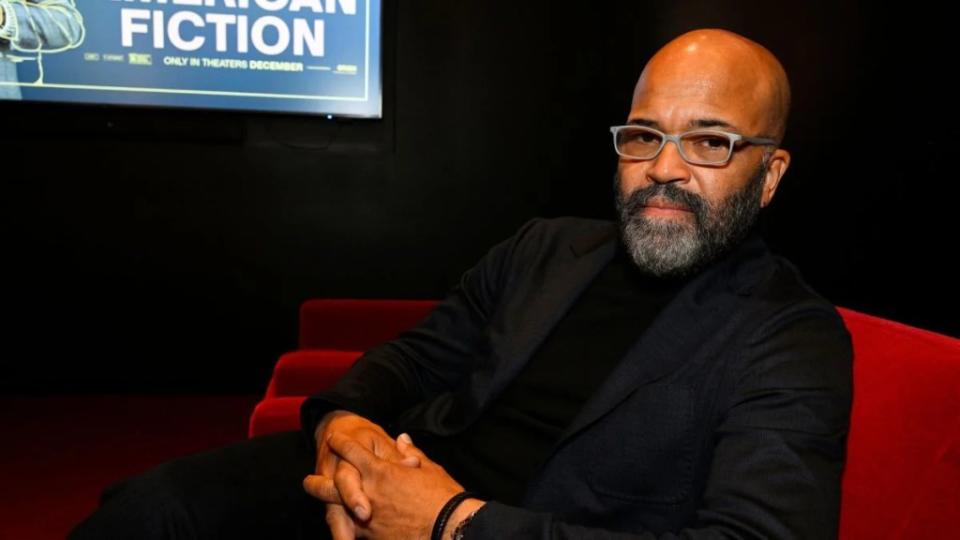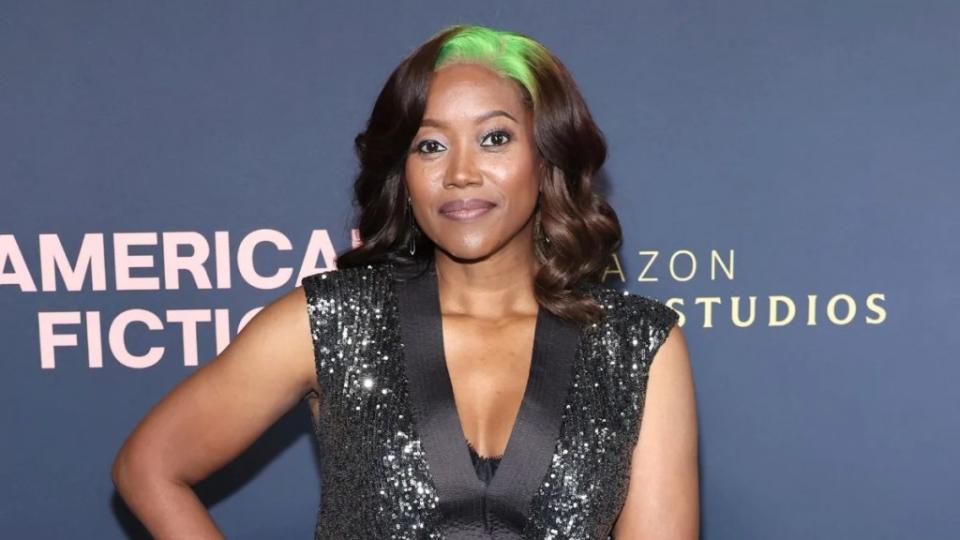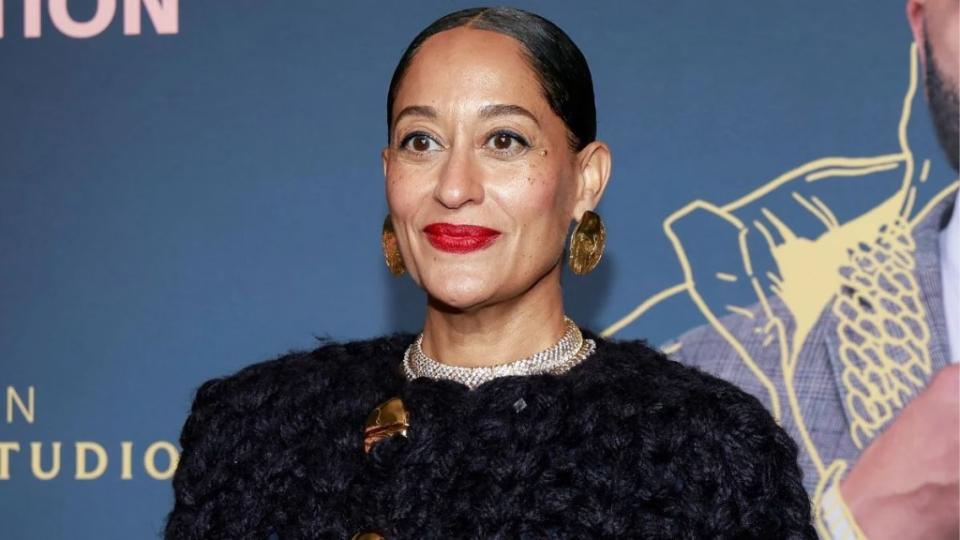‘American Fiction’ Star Jeffrey Wright Says He’s Fought ‘Mind-Blowing’ Racial Ignorance in Hollywood: ‘I Grew Up in America. It’s Familiar Territory’
- Oops!Something went wrong.Please try again later.
- Oops!Something went wrong.Please try again later.
- Oops!Something went wrong.Please try again later.
“American Fiction” cast members Jeffrey Wright, Tracee Ellis Ross and Erika Alexander opened up to TheWrap about their past experiences with racism in Hollywood, from being racially typecast to colorism and racial microagressions on set.
It’s pretty clear Hollywood still has a ways to go to tackle systemic racism — from “Oscars So White,” institutionalized racism that’s led to disparities in hiring and pay discrepancies between white people and people of color, to the recent exodus of Hollywood DEI executives.
While Cord Jefferson’s “American Fiction” stands as a comedy that highlights a struggling novelist and his family’s standard imperfections, beneath that plot, the film spotlights the limits that have historically been placed on Black stories. It also explores how Black creatives are fighting to provide a wide variety of Black narratives to the world.
That’s an experience Jefferson said he had himself just months before stumbling on author Percival Everett’s novel “Erasure,” which “American Fiction” is based on. An executive told him, through “an emissary,” that Jefferson needed to make a character “Blacker,” the writer-director shared at a screening event held by TheWrap. “This executive was afraid to tell me this to my face, and I said to the emissary, ‘I will indulge that note, as long as this person sits in front of me and tells me what it means to be ‘Blacker.” And the note went away.”
During an interview with TheWrap, Wright, Ellis Ross and Alexander broke down how they’ve had their own real-life “American Fiction” moments as actors in the industry.
These answers have been condensed for clarity.
Jeffrey Wright

“I grew up in America. It’s familiar territory,” Wright (“Westworld,” “The Hunger Games” franchise) said of his experiences with racism as a Black American and actor.
“I was doing a reading of a [William] Faulkner short story. It was the funniest thing, and is kind of indicative of the silliness. It was about a southerner, who was an officer in the Confederate Army, and accompanying him on his way into battle was this man whose freedom he owned, his slave.
“The director said to me at one point, ‘OK, so this is where we are. You’re coming back home now from the war. It’s been brutal, it’s been depleting.’ And he said to the guy who was voicing the officer of the Confederate, ‘You’re feeling all of this.’ And he said [to me], ‘You… you’re just happy to be home.’
“And [internally] I was like, ‘Wow, man. You think this man who accompanied this guy was somehow immune to the barbarity and vulgarity of death on all sides, that that didn’t penetrate his humanity and he was just happy to be home?’ It was amazing to me to think that someone could be so damn shallow-minded not to understand that guy’s experience on some levels was identical to the man that he had accompanied, I found it to be mind-blowing and also sad. I more pitied him for his absence of understanding of the world.”
Wright continued, sharing that he’s found ways during his career to navigate racial ignorance.
“Yes, I’ve had experiences in the industry which have tried to limit expectations for me or misunderstood my perspective. Sure. What I’ve also tried to do is to be as capable of an actor as I could. I tried to give myself, through that, as much flexibility as possible, so that I could keep myself busy. And so that I could find that many more opportunities to work, so that I wouldn’t have to continually run into situations that were uncomfortable for me or undesirable. And I’ve been reasonably successful in that.”
Erika Alexander

Alexander (“Get Out,” “Living Single”) said that, from the beginning of her career in Hollywood, she was placed her in a box that was labeled with stereotypical Black roles.
“In the first independent [film ‘My Little Girl’] that found me, I was a foster child. Then, after that, [I] was a prostitute and then a slave. That’s difficult in itself. After a while you get known for your ‘power.’ People see your power, your strength, and they want you to play that all the time.
“So you’re either coming in telling people what’s what — even with ‘Living Single.’ Maxine Shaw has a certain brilliance to her and strength when she comes into a room. She’s her own force of nature. You can sort of get locked in from there.
“By the way, I wasn’t the only one. Most dark-skinned Black women play those types of roles. DAs, captains, all that, [we’re] not there to be sort of delicate and drop the groceries and be cute, and have Jeffrey Wright help you pick them up and then drink wine and talk about who you are. That doesn’t happen. I don’t often get to play those roles.”
Alexander continued, sharing that her experience with having limited opportunities in Hollywood as a dark-skinned actress was one of the reasons she started her company Color Farm Media.
“People think, ‘Well, where have you been all this time?’ I said, ‘I wasn’t working as much as you might like.’ But also, one of the reasons was that the opportunities were few and far between. For a person like me, you get a reputation as such, and you think, ‘Well, I’m not going to be able to continue work unless I start to make more opportunities for myself.’ And then you realize that the whole community, the entire world, needs these things to be championed by people. So that’s what I did.”
Tracee Ellis Ross

At a certain point in her in her profession, Ellis Ross said she created a wall between herself and opportunities that didn’t align with her purpose as a Black woman and actress.
“When what is being asked of me [as an actress] feels like another extension of the limitations of the system, systemic racism, and I just won’t participate in that way. It’s one of the reasons ‘American Fiction’ is so beautiful to me, is because even the comedy, even the hilarity of this project comes out of the humanity, out of the truth, that the places that I laugh are the places I’m identifying [with].
“It’s not trying to make a joke. It’s not trying to create a stereotype that perpetuates and turns the volume up on something that you can’t help but to laugh at it, out of the discomfort or the awkwardness of it, but instead out of the identification, and that just felt like a real treat.”
Ellis Ross said that sometimes there’s a need to show up in places that may be challenging as a person of color, if it means providing a voice for those are underrepresented, depending on the circumstance. The actress recalled a time when she confided in her mother, legendary singer Diana Ross, an uncomfortable incident that took place on the sitcom “Girlfriends,” in which she starred as Joan Carol Clayton.
“I don’t always bring my mom career stuff, which is really interesting. Not for any reason other than I think I learned a lot just by being her daughter and witnessing — it’s such a close vantage point, how my mom navigated her career and her life. But, there are particular moments.
“There was a particular moment on ‘Girlfriends’ that was really challenging for me, that was particularly around how Blackness was being defined, that did not match up with what I believe is the expansiveness of Blackness, and it hurt my soul. I remember calling my mom crying. We had a long conversation about it.
“One of the ways that my mom parents that’s so beautiful is that she sort of holds space for you. She doesn’t tell you what she thinks you should be doing or what she thinks she would do. She just kind of holds space around you.”
Ellis Ross continued: “I remember landing on a decision for myself, which was the realization that it was more effective in this particular situation, for me to stay at the table, and fight for language and words that matched my point of view than to not be at the table at all. You’ve got to take it a thing at a time. Each thing needs to be weighed and measured and walked through, not only by what is being served to you, but also by the bandwidth that you have.
“Because there are times when you don’t have the capacity to do the fight and the fighting. And there are times when you have to, even if you don’t have the capacity, and then there are times when it’s OK to not fight. That sometimes is the resistance in and of itself, because self-care is part of the resistance. Sometimes the ‘no’ at one’s own expense is also contrary. You don’t want to do it at your own expense.”
The post ‘American Fiction’ Star Jeffrey Wright Says He’s Fought ‘Mind-Blowing’ Racial Ignorance in Hollywood: ‘I Grew Up in America. It’s Familiar Territory’ appeared first on TheWrap.

